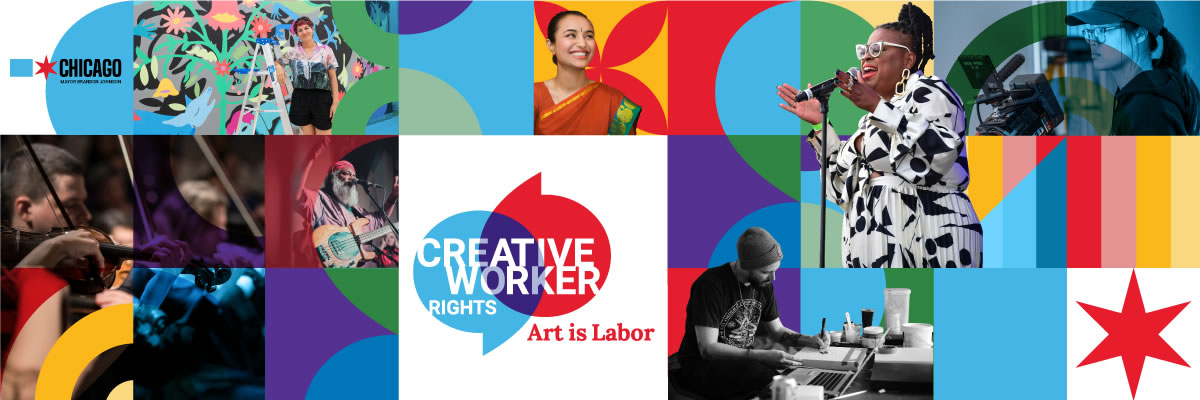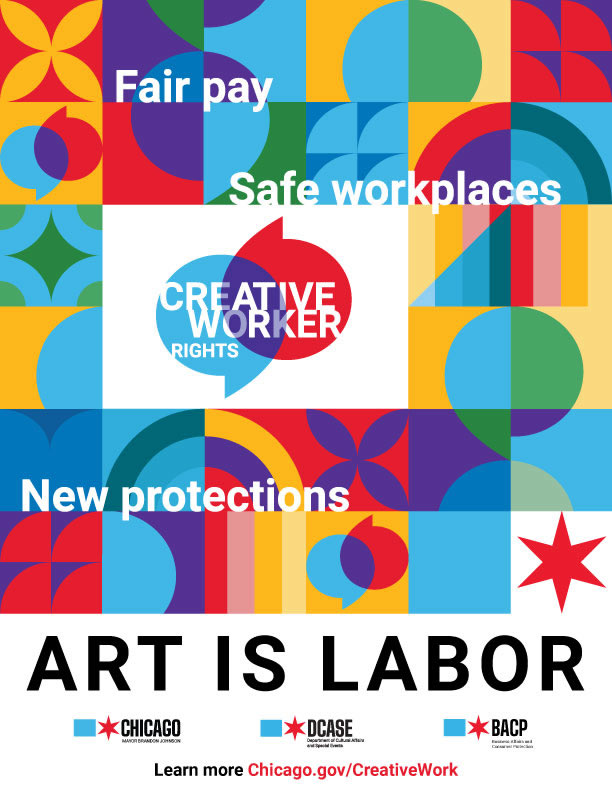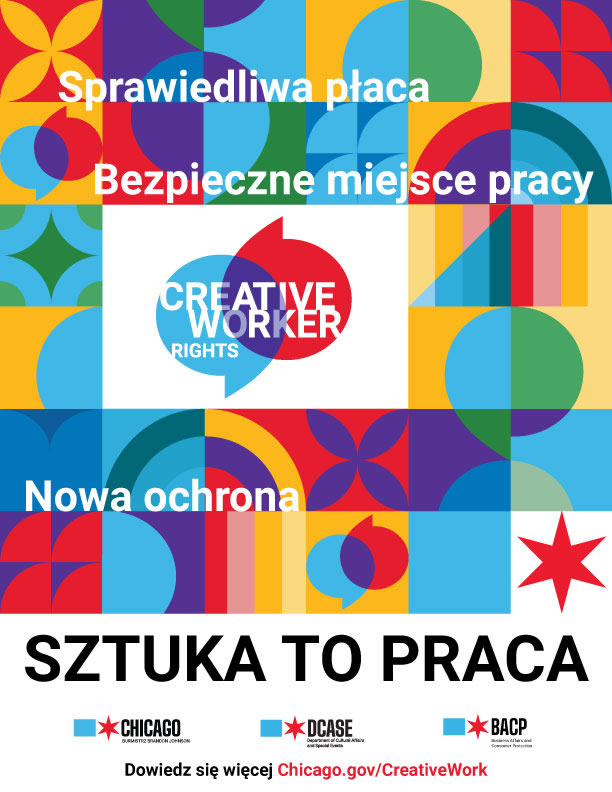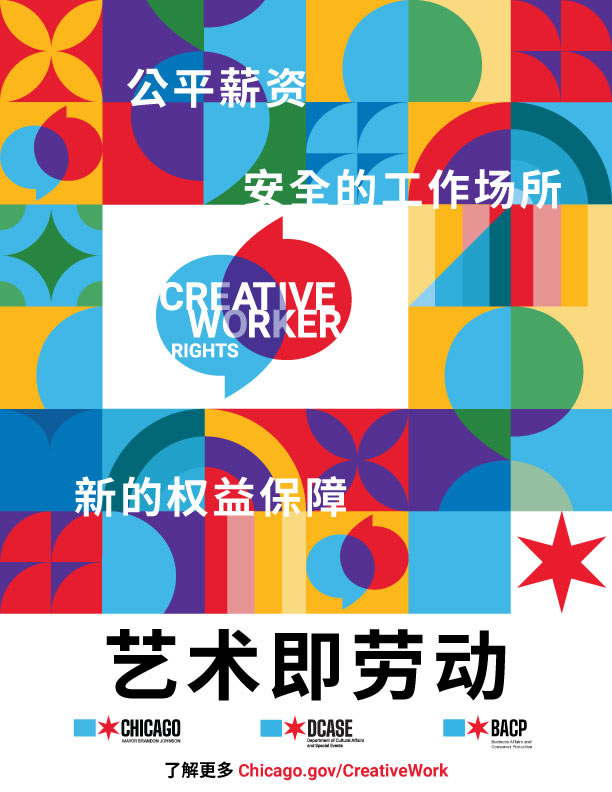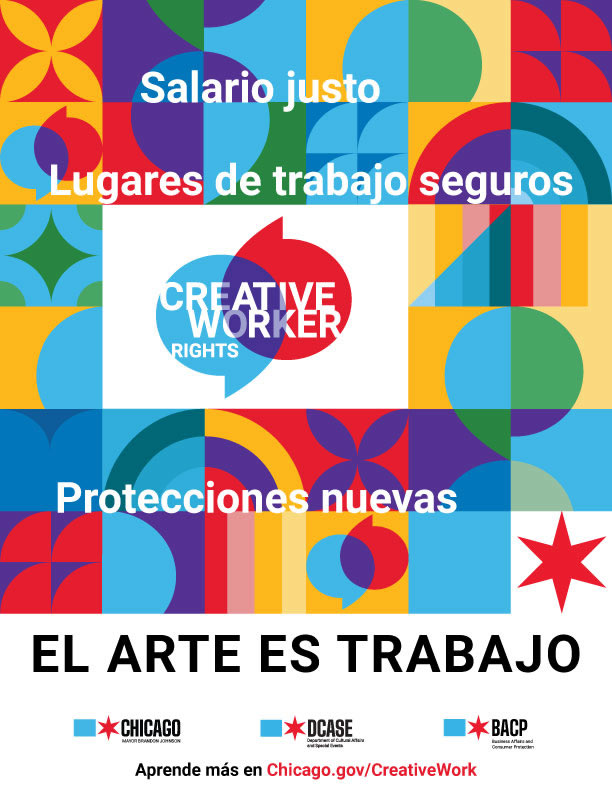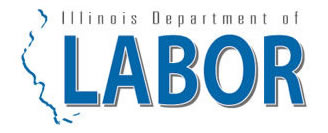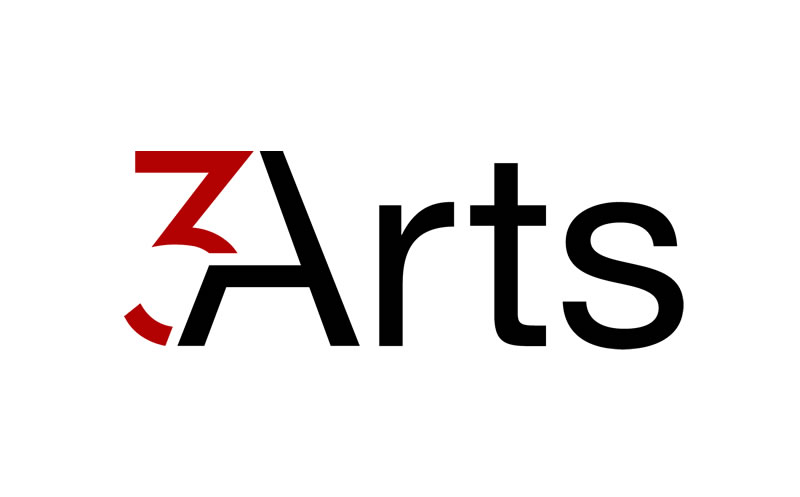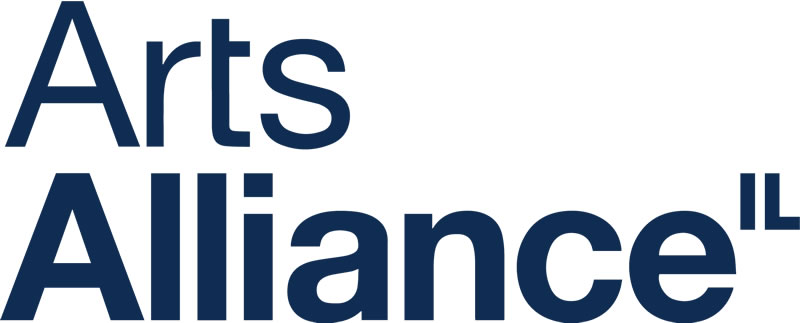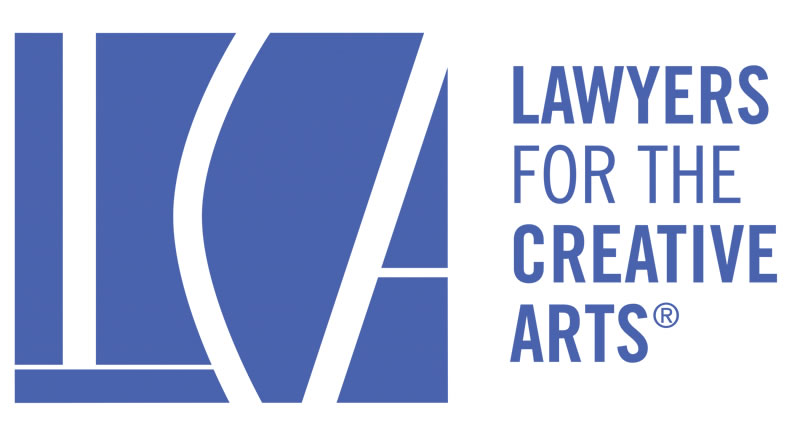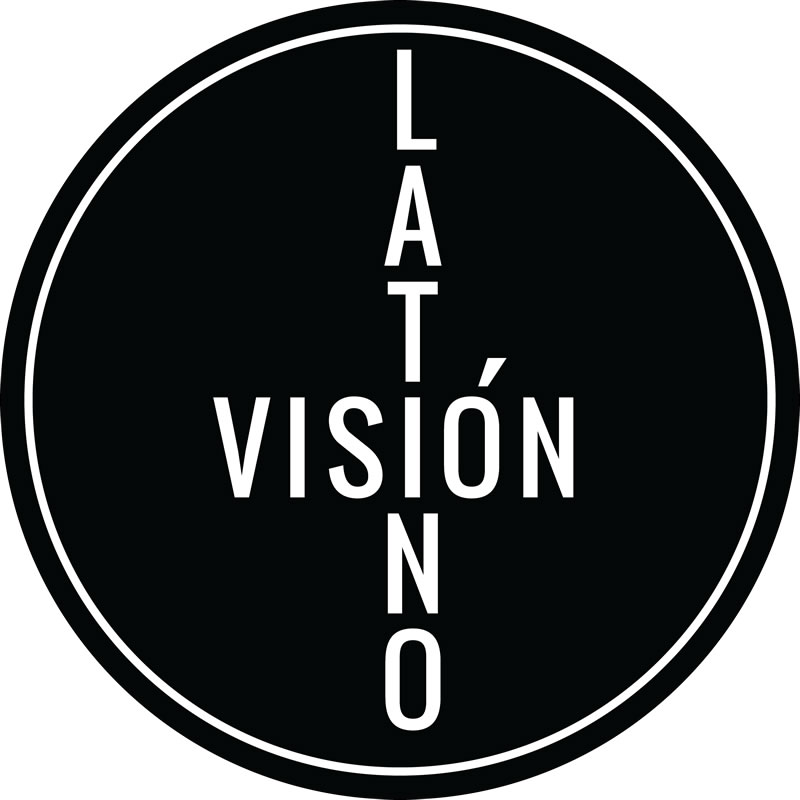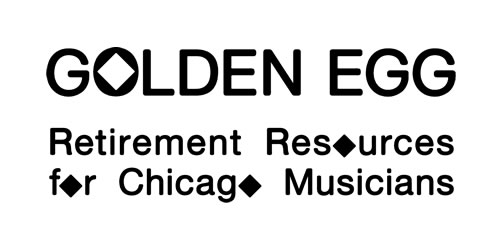Creative Worker Rights
Learn more about labor laws and protections & sign up for DCASE Office Hours!
- Check out the DCASE YouTube feed for introductory videos in English & Spanish.
- Sign up for DCASE Office Hours (3rd Wednesday of the month).
- The Chicago Department of Business Affairs and Consumer Protection (BACP) offers free webinars taught by industry professionals, not-for-profit agencies, and government agencies on various topics including business licensing, operations, financial resources, marketing and more.
Homepage | Background | For Workers | For Employers
Creative workers are the foundation of Chicago’s rich arts and culture landscape.
From artists to ushers to techs to administrators, and so many others, creative workers are fueling the imagination and design that are essential to the city’s businesses, organizations, and communities.
Artists and arts workers, a subset of creative workers, are 3.6x more likely than the general workforce to be self-employed. They are also more likely to work multiple jobs and often earn income for their creative production through grants, residencies, and fellowships.
Employment policies, laws, and working conditions must recognize, respond to, and serve creative workers to ensure that they, their families, and communities thrive.
Open dialogue about the issues facing creative workers is essential. This includes transparent, fair and equitable pay policies, safe workplaces, and access to tools to improve the conditions of creative production.
Creative Workers and Employers of Creative Workers are encouraged to learn more and join the conversation by:
- Watching the webinars on new and changing labor laws.
- Connecting with the Chicago Office of Labor Standards and Illinois Department of Labor.
- Signing up for DCASE Office Hours.
- Following the links for educational materials and resources.
- Sharing the campaign with their networks.
About the Campaign
The Departments of Cultural Affairs and Special Events (DCASE) and Business Affairs and Consumer Protection (BACP), through the Office of Labor Standards (OLS), are leading the “Creative Worker Rights: Art is Labor” Campaign to:
1) call attention to the truth that creative output is labor – from residencies and fellowships to more traditional forms of employment, creative workers are and should be protected as they earn;
2) connect Chicago’s creative workers – and their employers – to information about the relevant laws and resources at the local, state, and federal level;
3) highlight new protections that will improve creative workers’ ability to advocate and safeguard the conditions of their work; and
4) build the partnerships necessary to make sure that creative work is good work.
Download the Flyers
 Chicago Labor Laws
Chicago Labor Laws

Are you a Chicago employer? Are you an employee who receives a W-2, or do you have questions about why you don’t?
Learn more about the laws convering employers and employees from Chicago’s Office of Labor Standards. Information includes recent updates to laws on Minimum Wage and Wage Theft and Paid Leave and Paid Sick and Safe Leave. Sign-up for and review informational webinars, get connected to OLS newsletters, and find out how to file a complaint.
 State of Illinois Freelance Worker Protections
State of Illinois Freelance Worker Protections

Do you receive a 1099 for your work? Do you hire gig, temporary, or freelance workers?
Learn more about the Illinois Department of Labor and the state’s new Freelance Worker Protection Act. Starting July 1, 2024, the Freelance Worker Protection Act provides new protections for freelance workers including the right to a written contract, protection from intimidation and harassment, timely payment, and access to recourse in the event of a violation.
 Campaign Partners
Campaign Partners

Organizations in Chicago provide important resources to support ethical and equitable working conditions by providing direct support, education, materials to workers and those who employ them. Campaign partners are committed to sharing resources, providing updates on their own programming, and contributing to open dialogue about improving labor practices within their own organization, as well as within their networks.
To become a partner and list events listed on this site, please email CulturalResources@cityofchicago.gov with “Campaign Partner” in the subject line. Emails will be reviewed on a weekly basis.
 About DCASE & BACP
About DCASE & BACP

The Chicago Department of Cultural Affairs and Special Events (DCASE) supports artists and cultural organizations, invests in the creative economy, and expands access and participation in the arts throughout Chicago’s 77 neighborhoods. As a collaborative cultural presenter, arts funder, and advocate for creative workers, our programs and events serve Chicagoans and visitors of all ages and backgrounds, downtown and in diverse communities across our city — to strengthen and celebrate Chicago. DCASE produces some of the city’s most iconic festivals, markets, events, and exhibitions at the Chicago Cultural Center, Millennium Park, and in communities across the city — serving a local and global audience of 25 million people. The Department offers cultural grants and resources, manages public art, supports TV and film production and other creative industries, and permits special events throughout Chicago. For details, visit Chicago.gov/DCASE and stay connected via our newsletters and social media.
The Chicago Department of Business Affairs and Consumer Protection (BACP) ensures a fair and vibrant marketplace for businesses, workers and consumers in the City of Chicago. BACP licenses businesses and public vehicles, regulates business activity, protects consumers from fraud, enforces Chicago’s labor laws, partners with business service organizations and provides education and resources for businesses. For details, visit Chicago.gov/BACP.
The Office of Labor Standards (OLS), housed in the Department of Business Affairs and Consumer Protection (BACP), oversees Chicago's landmark labor laws through engagement and enforcement. OLS processes complaints, conducts investigations, mediates disputes, directs settlement proceedings, issues violations and if necessary, seeks licensure discipline against employers.





